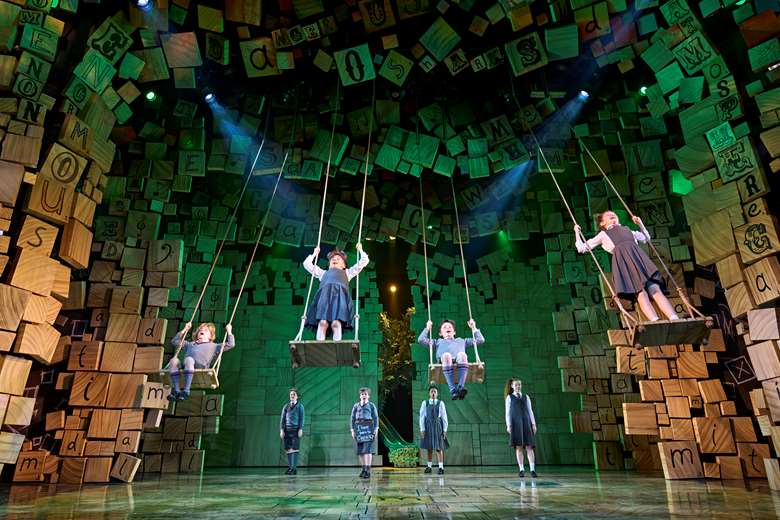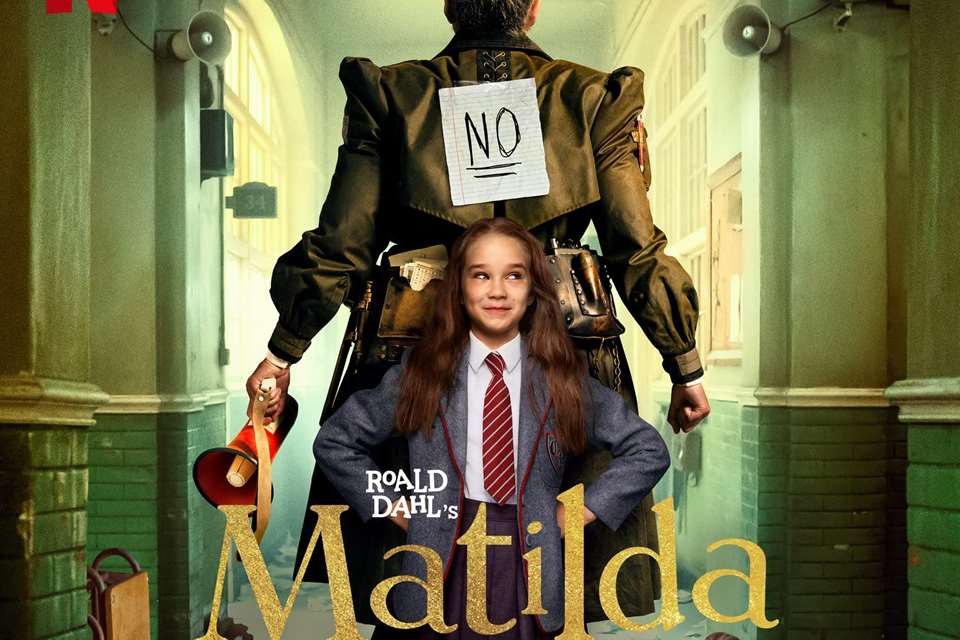Behind The Song: Tim Minchin’s ‘When I Grow Up’ from Matilda The Musical
Joe Stilgoe
Wednesday, December 6, 2023
Joe Stilgoe delves into the harmonic simplicity of the first song Tim Minchin wrote for the musical, and uncovers a torrent of bittersweet emotions

Roald Dahl, the scourge of lights-out curfews all over the world for more than 60 years, knew about growing up. He once said that the problem with most grown-ups is that they’ve forgotten what it was like to be a child. They lose the magic. As it says in The Minpins, the last children’s story Dahl ever wrote, ‘Those who don’t believe in magic will never find it.’
Here lies the conundrum though – children want to grow up, but at the same time they don’t want to leave behind the sweets, the chocolate cakes, the desire to watch telly without interruption, that belief in magic.
I will be strong enough to carry all the heavy things you have to haul around with you when you’re a grown-up
Enter a musical comedian with magic in his brain and his fingers, and an unmatched ability to distill massive notions into simple ideas.
Tim Minchin, adaptor of Dahl’s world into this most glorious theatrical form, was obsessed with the idea of turning Matilda into a musical – he actually tried to acquire the rights when he was writing songs for theatre in his home town of Perth in the late ’90s. Somehow it all happened at the perfect time, when Matthew Warchus had the idea Minchin would be the perfect match for the new musical they were planning at the RSC for 2010. This is where it all started.
And ‘When I Grow Up’ was the first song he wrote.
The stage is set with four giant swings. You don’t need to know this when you listen, but it helps. The opening piano phrase is effortlessly simple, and simply perfect. An F major triad (three notes), like a music box – A, F and of course middle C. This is the centre of the piano and the centre of our known musical world.
Children all around the globe can play this on the piano, quite easily, and they, too, are playing in the hope that childhood lasts forever – you only need three fingers (the other hand can hold the bag of sweets). Those of us who write music are always aiming for this: something that’s new but feels known, something already intrinsically part of our voices, and our hands.
The melody is beautifully innocent, the rising cadence echoing the lyrics: ‘When I grow up.’ Here’s the song in the first four notes – we’re captured already, the music pulling our chins up and the words grabbing the hairs up on our necks like the static from rubbing a balloon.
Because the tune is immediately memorable Minchin can afford to pack the song with words and thoughts, as a kid might, coming thick and fast as they imagine what it would be like to be a child in an adult world. No tooth decay, no bedtimes, sunshine every day, eyes not going square (this is, as far as I can tell, a myth – I, like Mr Wormwood, watched a lot of telly).
We have the opening verses, and then the full wonder of Chris Nightingale’s orchestration kicks in, snare drum pounding on every crotchet, hammering the point home that what we’re listening to is important. Of course it is. What’s more important than childhood?
Then the lyric that really gets my tear ducts producing their annual rainfall allowance, buried in the belly of the song and surrounded by joyous brass but standing out as the moment when every adult in the audience realises, if they haven’t already, that yes, children know, they do see the heavy things: ‘I will be strong enough to carry all the heavy things you have to haul around with you when you’re a grown-up.’
Beautiful, and it falls over the harmonic crux of the song, which gives it that particular poignancy – the melody on ‘strong’ is the third note of the F chord (A – very happy and very easy) but here it becomes the major seventh as the chord moves to B flat (also pleasant but the chord changes to B flat minor but with a G in the bass and the A then takes on a completely new feeling, one which grabs our ears and takes them into tear-prodding territory).
This all happens pretty quickly, of course, and me just writing down capital letters might seem arcane, but in a song like this with mostly simple harmony it’s a moment that becomes a musical magnet for all the emotional elements of the song.
The lift-off comes after the next verse, and those swings really start to soar as the drums go double time and we’re thinking about treats every day and never getting sunburned, and frankly, as the actors soar into the first few rows of the auditorium, if people aren’t smiling with big ugly tears streaming down their faces they’re not really human.
Matilda is one of the great stage adaptations of a novel. It is also a great adaptation of Dahl’s singular imagination, his wisdom and his impact on our lives. The story of a little girl with remarkable powers who is considered unremarkable by her family and desperate to grow up. The book, and the show – and this song – tell her it’s OK to take your time. To take growing up seriously.
Now where are those square spectacles?
This article originally appeared in the October/November 2023 issue of Musicals magazine. Never miss an issue – subscribe today


